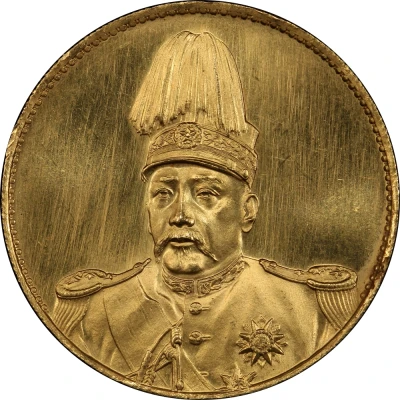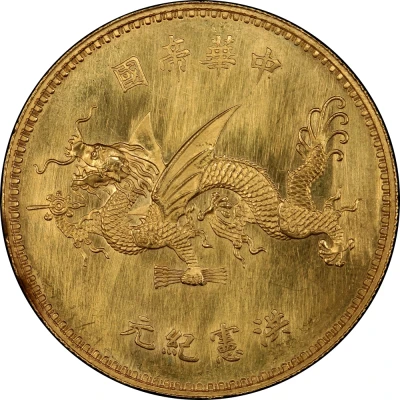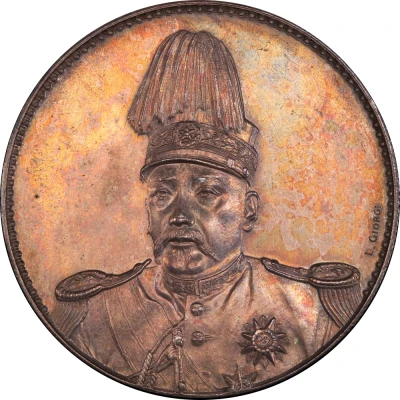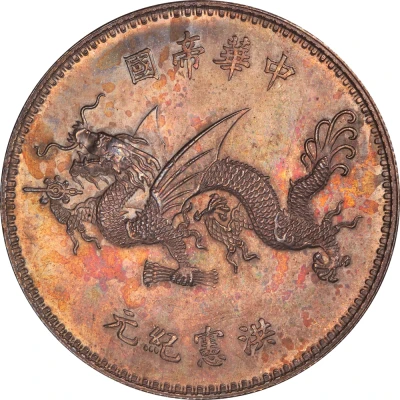1 Yuan Pattern; Inauguration of Hongxian Emperor; white metal
1 (1916) year| Tin-lead (white metal) | - | 39 mm |
| Issuer | Republic of China |
|---|---|
| Emperor | Hongxian (1915-1916) |
| Type | Pattern |
| Year | 1 (1916) |
| Calendar | Chinese - Hongxian era |
| Value | 1 Yuan = 1 Dollar |
| Currency | Yuan (1912-1948) |
| Composition | Tin-lead (white metal) |
| Diameter | 39 mm |
| Shape | Round |
| Technique | Milled |
| Orientation | Medal alignment ↑↑ |
| Demonetized | Yes |
| Updated | 2024-10-03 |
| Numista | N#241792 |
|---|---|
| Rarity index | 97% |
Reverse
Winged dragon flying left with Chinese ideograms above and below.
Lettering:
國帝華中
元統憲洪
Translation:
Empire of China
The 1st Year of Hongxian
Engraver: Luigi Giorgi
Comment
This coin commemorates Yuan Shikai's attempt to restore the Empire of China by proclaiming himself Emperor Hongxian in 1915; however, this attempt was a failure, and the Empire lasted only 83 days.Interesting fact
The Pattern 1 Yuan coin from the Republic of China, made of Tin-lead (white metal) in 1916, features a unique design that showcases a combination of Chinese and Western elements. On the obverse side, the coin bears the image of the Hongxian Emperor, while the reverse side features a depiction of a dragon and a phoenix, symbols of good fortune and prosperity in Chinese culture. This coin is particularly interesting because it represents a blend of traditional Chinese design and modern Western-style coinage, reflecting the cultural exchange and influence that occurred during the early 20th century.



